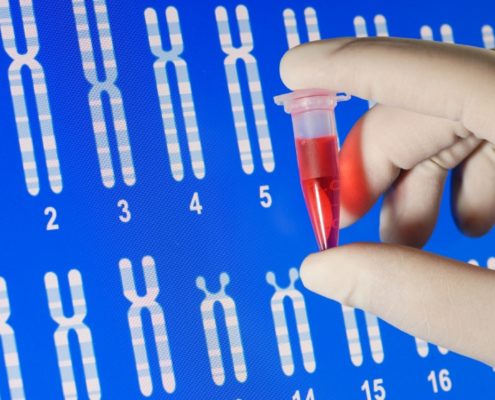Genetic Testing

Genetic testing helps to identify health problems in the developing fetus. Some tests are screening tests, meaning they can reveal the possibility of a problem. Others are diagnostic tests, which determines with certainty whether a problem exists.
Screening tests:
- First trimester screening (done at 11-14 weeks): a maternal blood test for 2 pregnancy hormones plus an ultrasound measurement of the thickness behind the fetal neck
- Quad screening (done at 15-20 weeks): a maternal blood test for 4 pregnancy hormones
- Cell free DNA testing (done after 9 weeks): identifies fetal DNA in maternal blood to see if there are extra or missing chromosomes
Diagnostic tests:
- Chorionic villus sampling (done at 10-14 weeks): a piece of placental tissue is removed abdominally or vaginally and the fetal chromosomes are analyzed
- Amniocentesis (done at 15-20 weeks): amniotic fluid is removed abdominally and the fetal chromosomes are analyzed
All women can have the first trimester and quad screening test. The other tests – cell free DNA, CVS, and amniocentesis – are reserved for women over age 35 or those with a history of genetic abnormalities. You should talk to your doctor early in the pregnancy about which tests may be right for you.


